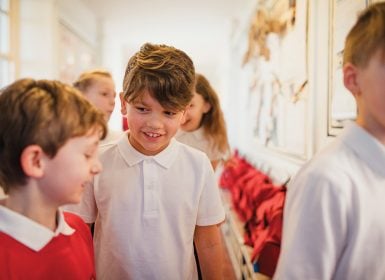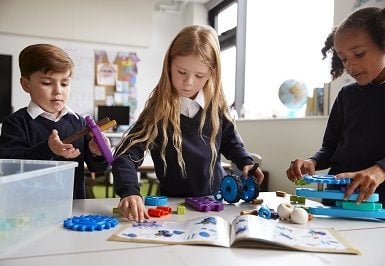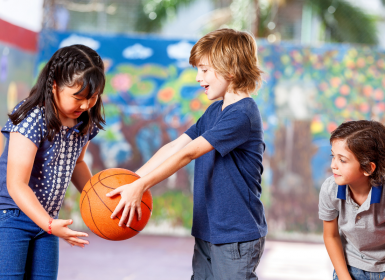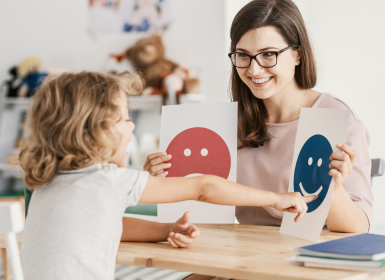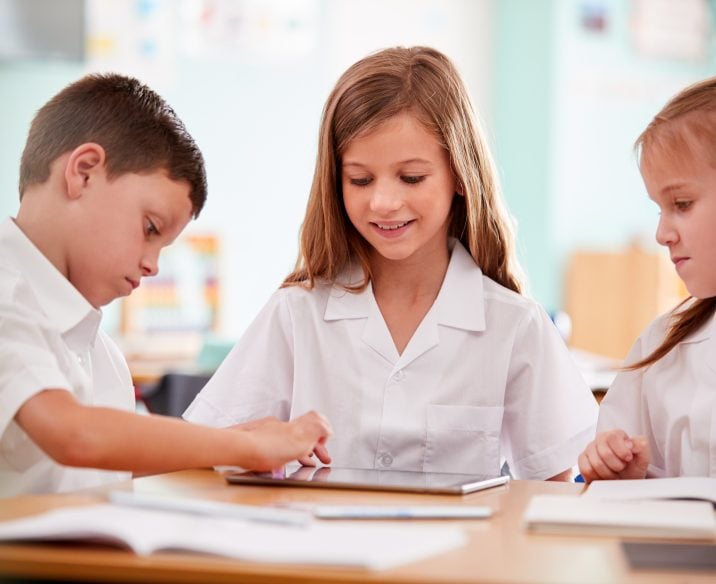
Social skills for children are imporant as they enable them to interact with others and conquer their daily challenges, be that in the playground, on the sporting field or at home.
Social skills include a whole range of things from eye contact, facial expressions and body language, to greeting people, having conversations, sharing and following instructions.
Just like your core muscles a good set of social skills always need to be worked on and worked out. They don’t come naturally to a lot of kids – in fact, approximately one in five children in each classroom experience difficulties. That’s why it is so important to know some of the main social skills that children may struggle with, so you can provide guidance and support.
Six Important Social Skills for Children
Listening skills
All adults know that listening isn’t always something that comes naturally – and certainly not always willingly! Listening is more than simply hearing someone say something, it is about absorbing the information and really understanding what someone is talking about.
At the heart of listening is empathy and comprehension. Knowing when it is time to listen and then actively listening and partaking in the situation.
Listening skills also include things like body language. For example, does your child look at the eyes of someone who is talking, are they sitting still when being spoken to or are they fiddling with things.?
We know from our own experience that listening skills are something that we’ll need across our whole life, whether it’s at home, at school or in the workplace, so it is important to help your child get a grasp on this vital social skill at an early age.
Some ways that you can help your child build their listening skills are ensuring they’re making eye contact when communicating with someone and by asking them to repeat things they’ve heard, so you know they have understood.
Following instructions
Children who can’t follow instructions can find themselves facing a number of challenges. From having to re-do homework to sitting out of play time because of misbehaviour, not being able to follow instructions can have an ongoing impact on their ability to participate.
Whether it’s transitioning between activities at preschool, learning a new spelling word, or following advice on how to improve their footy skills, all kids need to be able to listen, comprehend and follow instructions so that they can reach their potential.
Just like all the other important social skills, following instructions is something that needs to be practiced. All parents know young kids often get distracted, behave impulsively, or forget what they’re supposed to be doing. Lead by example, monitor their progress and see each mistake as an opportunity to help them build their skills.
Read more about ways to help your child follow instructions here >
Sharing
Like the old saying goes, sharing is caring.
A child willing to share a toy or a tasty chocolaty sweet shows positive empathetic strengths and good social skills.
Most parents know that children between the ages of two and six often struggle with sharing, but when children reach the ages of seven and eight they have a better understanding of fairness and are more willing to share.
Sharing is important because, even adults know this, sharing makes us feel good. It gives us a little self-esteem boost and shows us what it is like to be on the receiving end of a positive interaction.
Provide gentle encouragement for your child to share with others, and show them how by sharing with them too.
Cooperation
Cooperation is an important social skill for children to have because it allows them to work together with others towards a common goal.
This is a great social skill to help build respect, resourcefulness and problem–solving skills. When we cooperate together, we exercise both our communication and listening skills.
Cooperation also means co-existing in a community, be that in school, in a sporting team or at home. Children, and adults, are always in situations that will call on them to cooperate so it is important to practice good cooperation skills.
Using manners
Minding your Ps and Qs isn’t just an old fashioned concept, being polite is productive and an important social skill for children. Saying please and thank you can go a long way toward helping your child gain attention for all the right reasons.
Parents know that teaching a child manners can feel like an uphill battle sometimes. Tantrums at the dinner table, paying bribes for good behaviour at bath time or simply acting ungratefully when they get something they want, all kids can let their manners go out the window from time to time.
Good manners are important, as they show empathy and understanding, however for children to know how to be polite and respectful they first must witness it at home and at school. Leading by example is a perfect way to show this.
Respecting Personal Space
Some children have no concept of personal space. They’ll happily follow you into the bathroom without thinking twice or try to sit in your lap while you’re on a work Zoom call at home.
While snatching and grabbing is quite common when children are playing, as they get older it can be an indication that they may not understand or be aware of other people’s personal space and what is appropriate.
You can help by role playing different situations and showing your child how to respect personal space to make sure they know why it is important.

